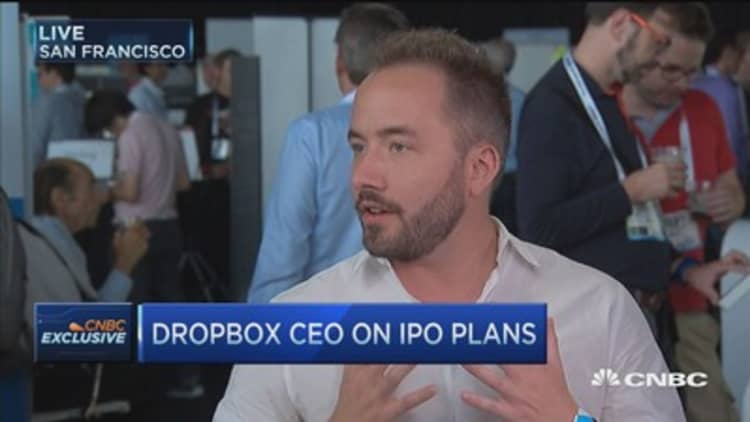Agrilyst, an online platform that provides data analytics to greenhouse growers, took top honors at TechCrunch Disrupt's start-up pitch competition on Wednesday.
The start-up beat out 25 others to take home $50,000 cash, and, just as importantly, a higher profile in the start-up community.
"You win this competition and immediately your inbox is flooded with investor emails, which I know 'cause it just happened," said founder and CEO Allison Kopf.
Agrilyst helps farmers better manage operations by pulling in and analyzing data through an online dashboard. It's a platform created by co-founder Jason Camp, a tech veteran who has built companies acquired by Google and Yahoo. It helps growers manage tasks such as harvesting, enabling them to adjust the timing of the growth cycle based on yield performance. Data is drawn from sensors on greenhouse hardware, uploaded from documents or manually entered.
"It may not be the flashiest and it may not be consumer-driven, but it's needed in the [agriculture] industry and the industry is big," said Kopf.
Kopf has four years' experience as a hydroponic grower and estimates the addressable market in the U.S. alone to grow to $9 billion. "Tech is now interested in agriculture, and that's damn exciting!" said Kopf.

Agrilyst launched the platform in private beta just two months ago, and the company is already working with six greenhouses and generating revenue. Customers pay a subscription fee of $1,000 per acre, per month. The grand plan is to expand to hardware and grow the company internationally. With more than 1 million acres of vegetable production houses globally, Kopf says this is just the beginning: "Our long-term vision is really starting with the data, expanding into hardware and seeing where that takes us. We're really focused on international development pretty quickly."
"I love it when a founder starts a company because they have a personal problem and start a company to find a solution," said Sequoia Capital's Roelof Botha, one of Disrupt's judges.
"If you think about the need to feed people with hydroponics, greenhouses is going to be an increasing trend. It's already a large market, and they have very nice tailwinds," said Botha.
Though investments may not happen on the spot at Disrupt, venture capitalists often circle back later when the companies have had time to prove themselves further.
Past winners have gone on become so-called unicorns—start-ups that have risen to $1 billion in value or higher—such as cloud storage service Dropbox, now valued at around $10 billion and cloud-based automated human resource service Zenefits, valued at $4.5 billion.
Others have been snapped up by software giants; online personal finance service Mint was acquired for $170 million in 2009 by Intuit and enterprise social networking service Yammer was bought for $1.2 billion in 2012 by Microsoft. Of 508 start-ups that have participated since the first competition seven years ago, 65 have been acquired and two have entered the public markets.



